
Breaking the cycle of poverty and its effects on mental health
Breaking the poverty cycle requires addressing its deep impact on mental health. Preventive and therapeutic strategies, starting from gestation, can reduce trauma and foster healthy development for children and families.
Learn More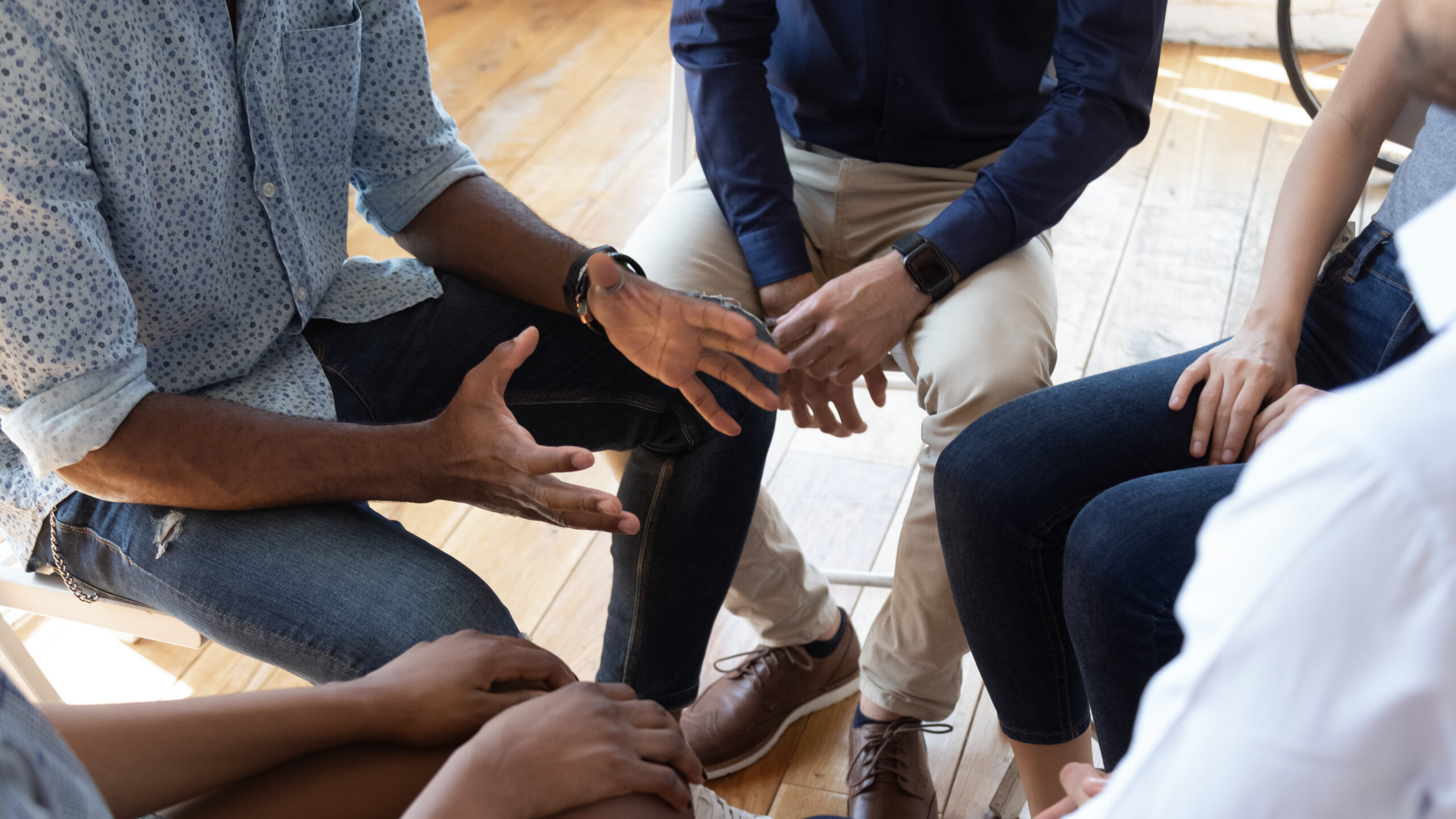
Atender la crisis de sobredosis desde un enfoque de salud pública
The overdose crisis is a public health emergency. Harm reduction, decriminalization, and community-driven solutions are key to saving lives.
Learn More
A new approach to family welfare
Puerto Rico has achieved a significant milestone, becoming the first territory in the U.S. to have an approved child welfare prevention plan. This plan, aligned with the federal public policy contained in the Family First Prevention Services Act, not only increases the state’s capacity to recover funds from the federal government but also sets a promising path for our families, children, and youth. What does this historic achievement mean for us all?
First and foremost, the adoption of the plan implies transforming the system to offer services that have been proven effective in preserving families together, using evidence-based and trauma-informed interventions. These services focus on addressing mental health issues and substance use-related problems, promoting parenting skills, and providing support and assistance to relative caregivers.
Evidence-based practices are interventions scientifically proven to be effective and appropriate for addressing specific problems in a particular population. The selection of evidence-based practices for Puerto Rico’s plan favored relevant and suitable interventions for our cultural and linguistic context. The trauma-informed approach ensures that organizations, systems, programs, and services take into account the impact of traumatic experiences. It also recognizes the signs and symptoms of trauma in individuals, families, the workforce, service providers, and others involved in the welfare system while actively seeking to prevent re-traumatization.
Let’s look at a hypothetical example: the Department of Family Services intervenes with a family after receiving a complaint. After evaluation, it determines that the children are not in immediate danger, so they remain in the family home. The family is referred to a prevention plan that includes individual and family therapies. This plan will take into account the effect of trauma on the family, such as intergenerational trauma related to abuse. The therapy plan will use one or more evidence-based interventions to strengthen parenting skills and address any other needs.
As part of the approved plan, Puerto Rico will provide five evidence-based interventions in accordance with federal requirements. These interventions will be offered through the Department of Family Services and include Parenting Fundamentals, Motivational Interviewing, Brief Strategic Family Therapy, Functional Family Therapy, and the Kinship Support Program. These services will expand the resources available to support children, youth, and their families, and it is expected that these resources will continue to grow with the implementation of the prevention plan.
Studies show that when children and youth remain in a family setting, whether with their parents, relative caregivers, or foster homes, they experience healthier development. This transformation supports and complements that approach with interventions proven effective in promoting children’s welfare. This way, our families will receive effective family preservation and prevention services while collaborations between the Department of Family Services and community service providers expand.
(Originally published in the Opinion section of El Nuevo Día.)
Learn More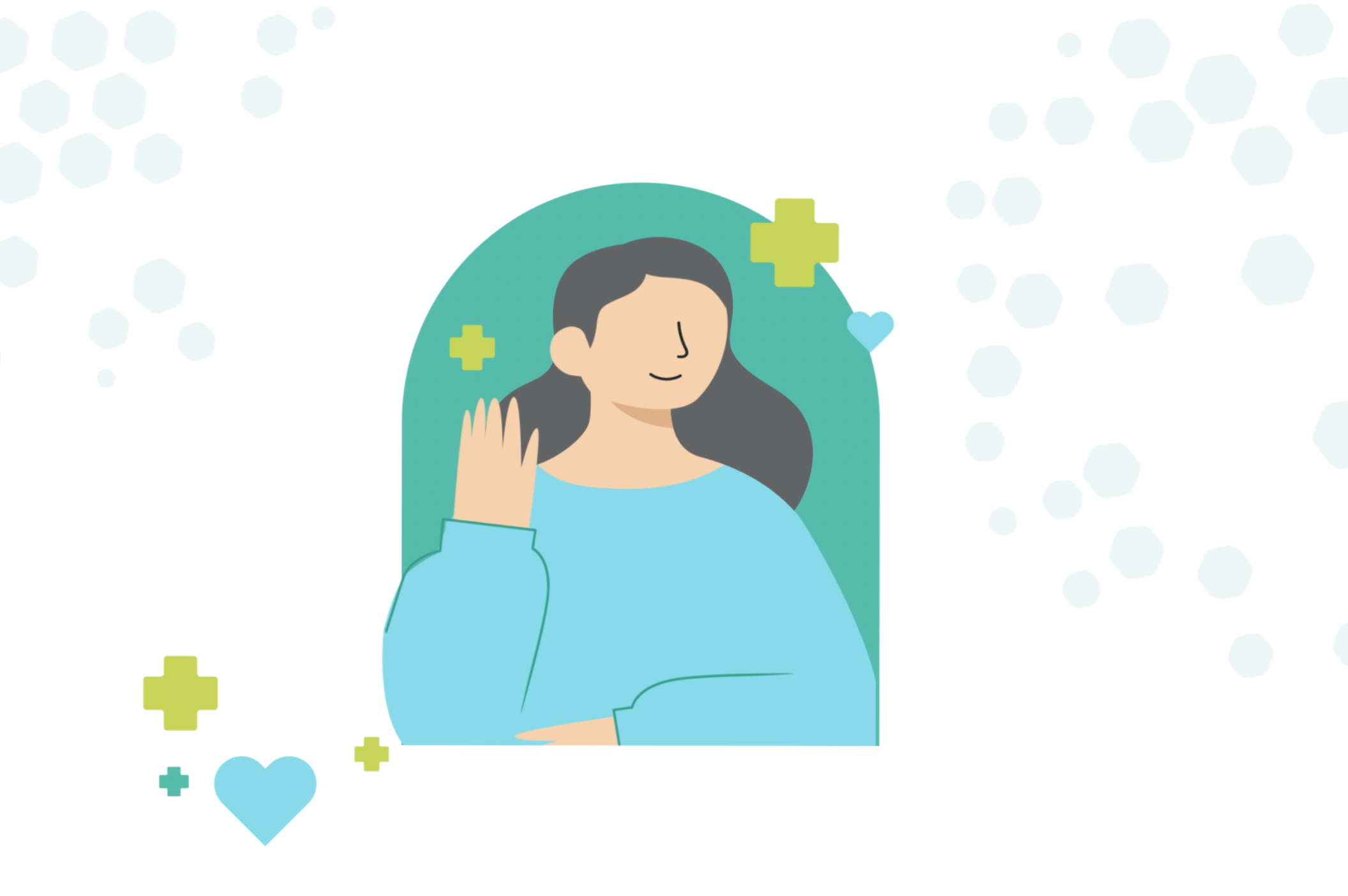
Video: Case study of Grupo Nexos’ capacity building services
Case study of Grupo Nexos’ Capacity Building services using an evidence-based wellness and trauma management program.
Learn More
Key aspects to protect the sexual health of children and youth
Opinion editorial for El Nuevo Día. Authored by Edna Acosta Pérez, PhD, MSc, Psychologist and Health Educator, Co-Director of the Puerto Rico en Óptima Salud (PROSa) Program.
Learn More
Puerto Rican Voice and Participation on the Executive Board of the International Union of Psychological Science
The International Union of Psychological Science (IUPsyS) elected Puerto Rican Dr. Marizaida Sánchez Cesáreo as the organization’s treasurer. Dr. Sánchez Cesáreo is the first Puerto Rican woman to hold a leadership position in this organization, which brings together professionals and associations dedicated to mental health worldwide. In her role, Sánchez Cesáreo will promote an agenda representing Caribbean identities in international psychology, bring new resources to the institution, and foster collaborations with other organizations.
“The International Union of Psychological Science has tremendous potential to engage in collective impact efforts to attract new members, expand its capacity, and consolidate its position as a global psychology representative. I look forward to contributing to the organization’s growth and the advancement of a diverse agenda on the issues driving our profession and impacting the countries of our region,” said Sánchez Cesáreo, who is the CEO of Grupo Nexos, a Puerto Rican nonprofit organization providing consulting, capacity building, and evaluation services using evidence-based practices.
Sánchez Cesáreo holds a Ph.D. in Community Clinical Psychology with a specialization in Women’s Studies from DePaul University in Chicago. In addition to leading Grupo Nexos, she chairs the Governor’s Advisory Council on Juvenile Justice Prevention. She has played a key role in the local creation and dissemination of evidence-based practices. Recognized for her contributions to public health, she has initiated more than 50 community health projects grounded in the collective impact framework.
Sánchez Cesáreo’s election took place during the 33rd International Congress of Psychology, recently held in Prague, Czech Republic. The organization elected its board of directors to drive the entity’s strategic plans for the next four years. The Congress brought together over 4,000 psychology professionals from around the world.
The International Union of Psychological Science has 96 member countries and 20 affiliated organizations, representing over a million psychologists worldwide. It seeks to promote the development, practice, and representation of psychology as a science at national, regional, and international levels. Founded in 1889 during the first International Congress of Psychology in Paris, it holds consultative status with the United Nations Economic and Social Council, maintains formal association relations with UNESCO, and official relations with the World Health Organization (WHO).
Learn More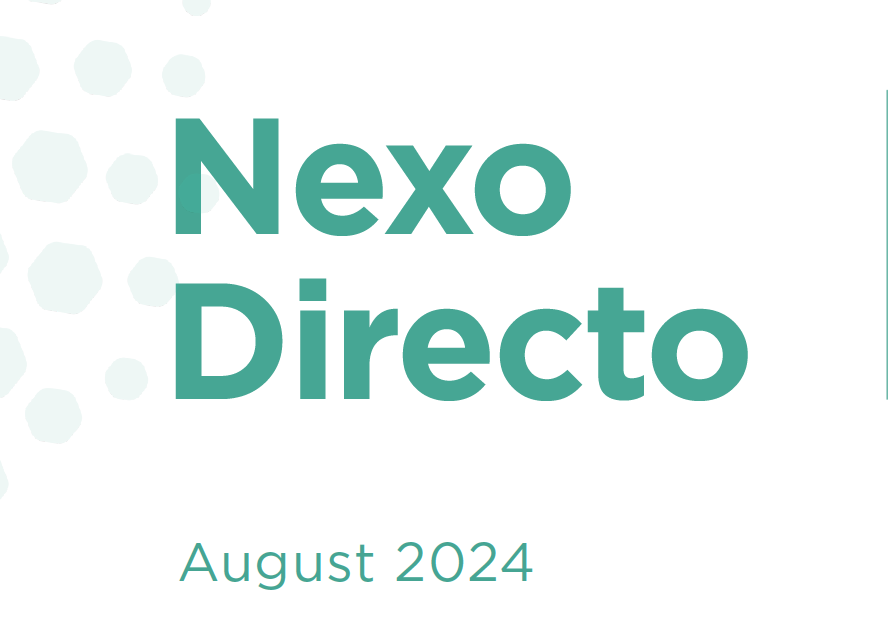
Nexo Directo Newsletter | August 2024
Access our quarterly newsletter here: Nexo Directo Newsletter | August 2024
Learn More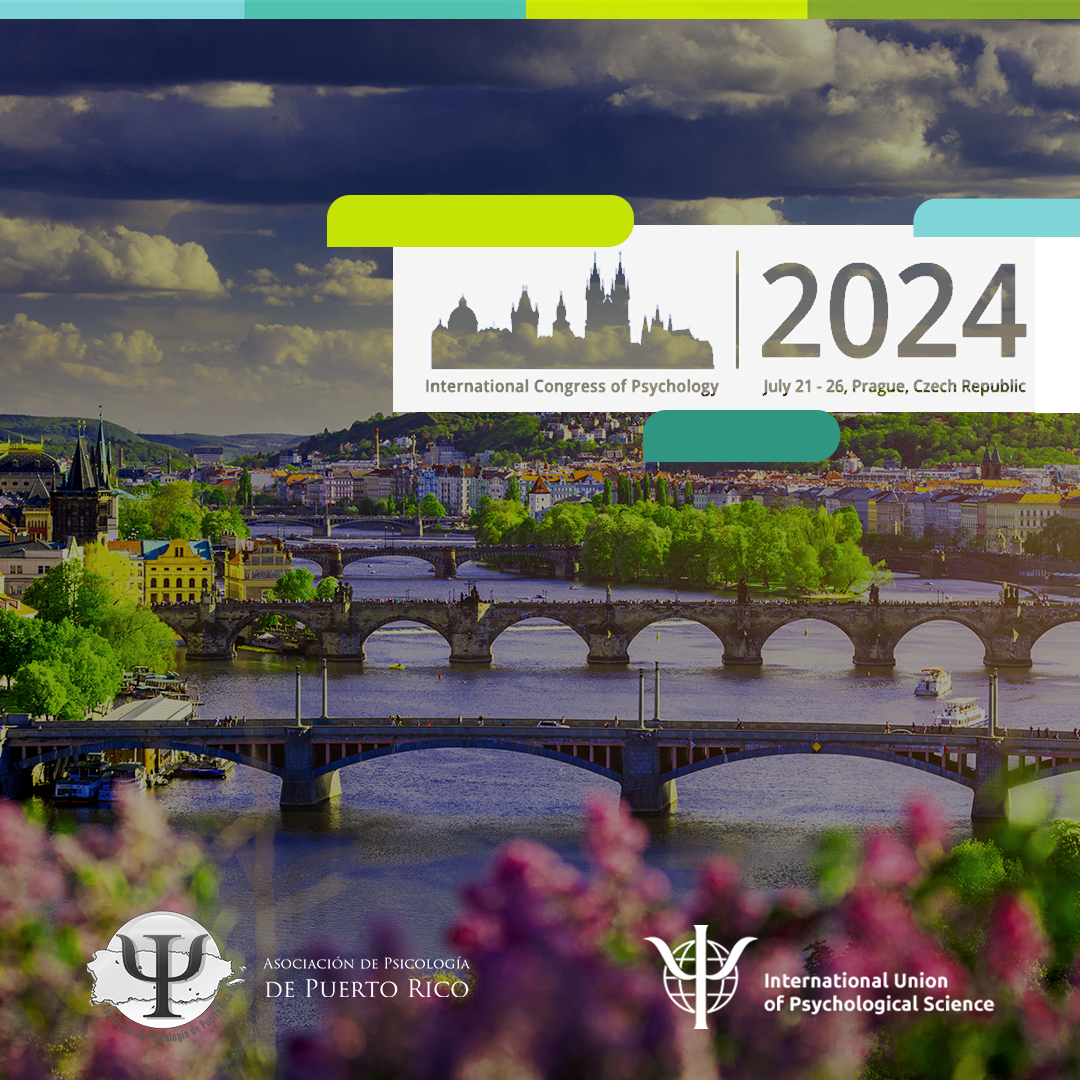
International Congress of Psychology
Puerto Rico will participate in the International Congress of Psychology in Prague, organized by the International Union of Psychological Science. The Puerto Rico Association of Psychology will be present, and our members are part of the delegation, offering a keynote address on strategies to improve employee well-being and oral presentations on well-being, trauma, and care experiences.
The conference will be held from July 21 to 26, 2024. Access our participation schedule here: GN – Itinerario Conferencia Internacional Psicología 2024
Learn More
Health education project launches tool to strengthen parenting skills
The photo book showcases dynamics to help parents or caregivers connect with their teenage children.
Learn More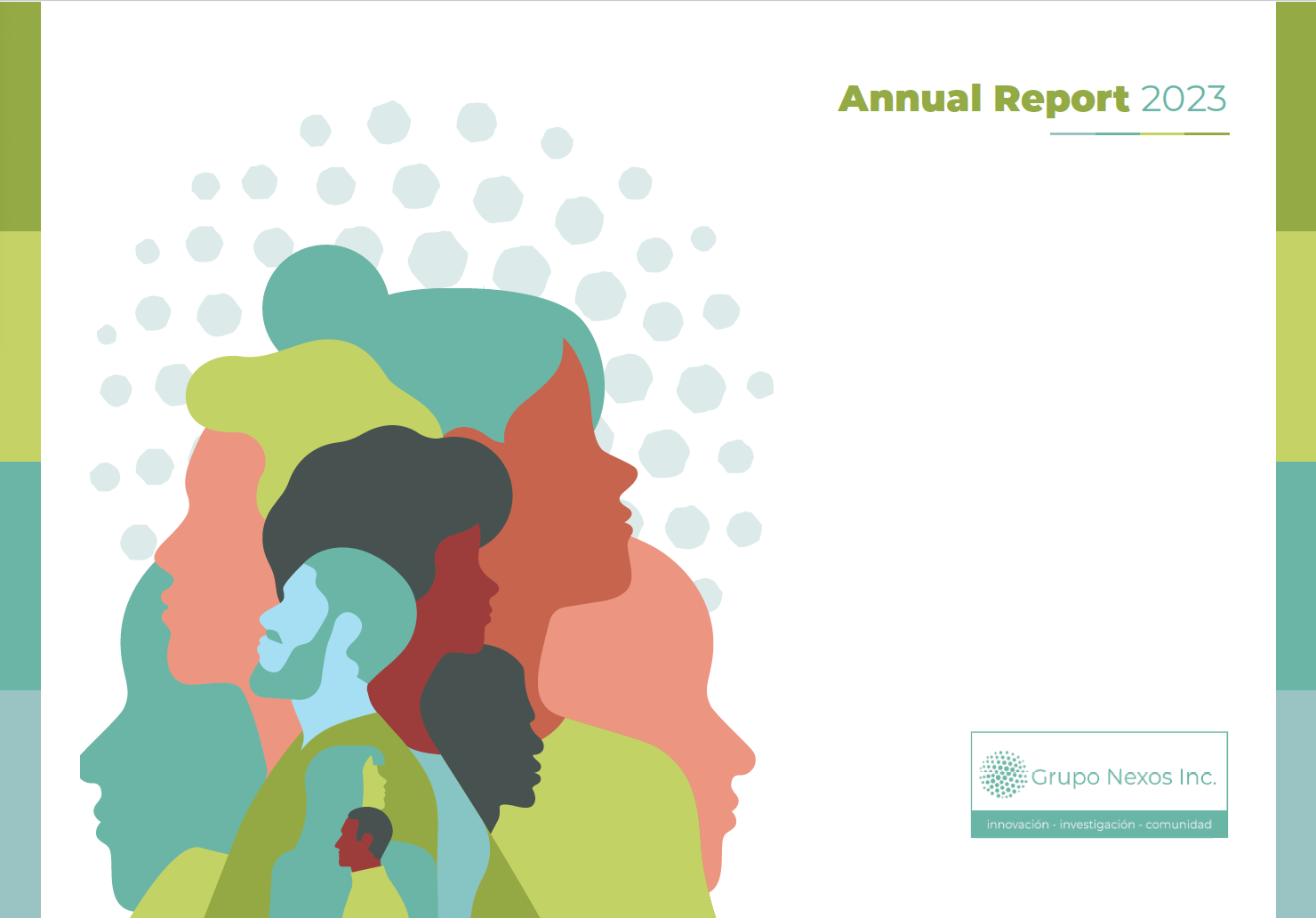
Grupo Nexos: Annual Report 2023
The annual report for Grupo Nexos for the year 2023 is now available. The first annual report of Grupo Nexos is a milestone that marks our journey since our foundation in 2021. This report highlights our efforts and achievements from our inception until December 2023. You can access the report through the following link: Grupo Nexos: 2023 Annual Report
Learn More